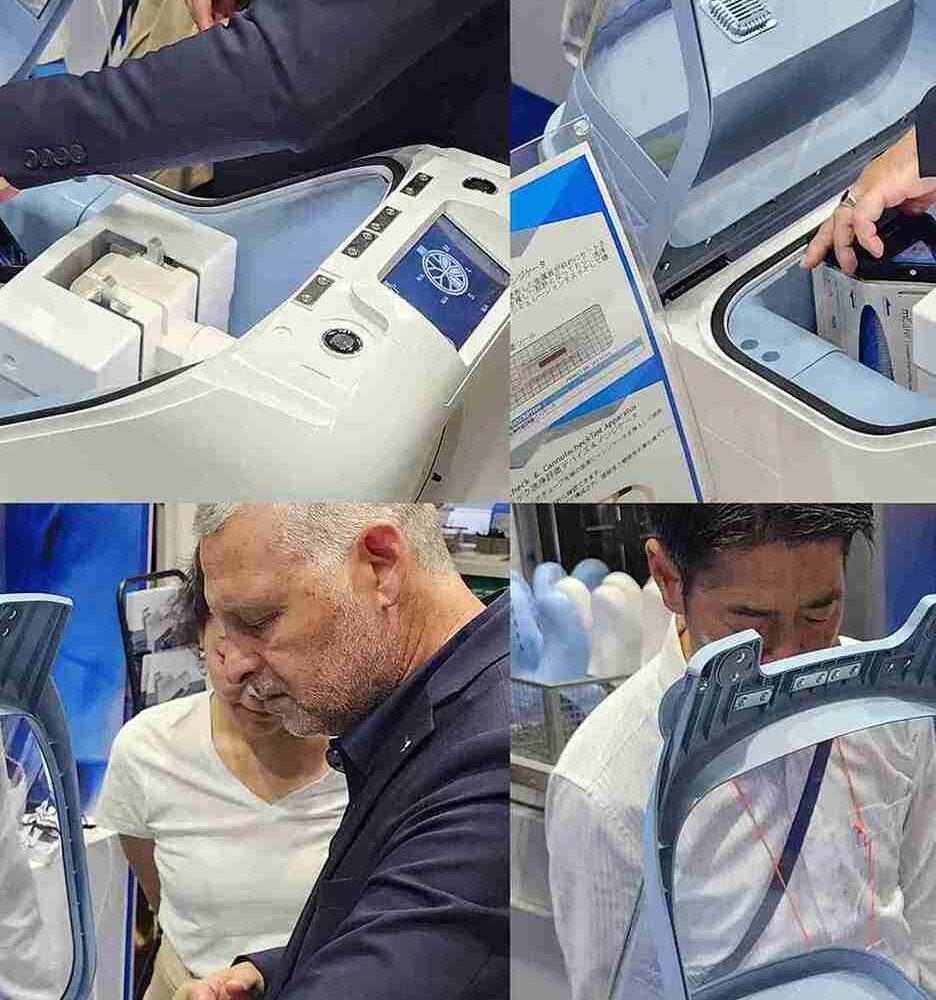Nitrile exam gloves have become a staple in healthcare settings, offering superior protection and comfort compared to other types of gloves. As the demand for reliable, high-quality gloves increases, nitrile exam gloves have emerged as a preferred choice among healthcare professionals. This article explores the reasons behind the growing popularity of nitrile exam gloves, their advantages, and the considerations for selecting the right pair.
Why Nitrile Exam Gloves Are Preferred
The choice of nitrile exam gloves in healthcare is driven by several factors that make them stand out from other options like latex and vinyl.
Allergy-Free Protection
One of the most significant advantages of nitrile exam gloves is that they are latex-free. Latex allergies are a common concern in healthcare environments, and nitrile provides a safe alternative that does not compromise on protection. This makes nitrile gloves an ideal choice for both healthcare providers and patients who may be sensitive to latex.
Superior Durability
Nitrile exam gloves are known for their durability. They are more resistant to punctures and tears compared to latex and vinyl gloves, making them suitable for procedures that require high precision and protection. The durability of nitrile gloves ensures that they can withstand the demands of rigorous medical tasks without compromising safety.
Chemical Resistance
Another key benefit of nitrile exam gloves is their excellent chemical resistance. These gloves provide a strong barrier against a wide range of chemicals, including those commonly used in medical and laboratory settings. This resistance makes nitrile gloves a reliable choice for situations where exposure to hazardous substances is a concern.
Applications of Nitrile Exam Gloves in Healthcare
Nitrile exam gloves are versatile and can be used in various medical settings. Their unique properties make them suitable for a wide range of applications.
Surgical Procedures
In surgical settings, the integrity of gloves is crucial. Nitrile exam gloves are often used in surgeries due to their strength and resistance to punctures. They provide the necessary tactile sensitivity and flexibility, allowing surgeons to perform intricate procedures with confidence.
Diagnostic Exams
Nitrile exam gloves are also commonly used during diagnostic exams. Whether it’s a routine check-up or a more specialized diagnostic procedure, these gloves ensure that healthcare providers can conduct exams safely while maintaining a high level of hygiene.
Handling Hazardous Materials
Healthcare professionals often handle hazardous materials, such as chemotherapy drugs or bodily fluids that may carry infectious diseases. Nitrile exam gloves offer robust protection against these risks, making them the preferred choice in situations where safety is paramount.
Environmental Considerations of Nitrile Exam Gloves
While nitrile exam gloves are highly effective, it’s important to consider their environmental impact. As with all disposable gloves, proper disposal and sustainability are key concerns.
Biodegradability Issues
Traditional nitrile gloves are not biodegradable, which poses a challenge in terms of environmental sustainability. The medical industry is continuously exploring alternatives and innovations to reduce the environmental footprint of disposable gloves, including the development of more eco-friendly nitrile options.
Recycling Programs
Some healthcare facilities have implemented recycling programs for nitrile gloves. While not all nitrile gloves can be recycled, certain types can be processed and repurposed, reducing the amount of waste that ends up in landfills. Participation in these programs can significantly mitigate the environmental impact of glove disposal.
Reducing Waste
Healthcare facilities can also reduce waste by optimizing their use of nitrile gloves. This involves using gloves only when necessary and exploring the use of reusable gloves in situations where appropriate. Additionally, manufacturers are working on creating thinner, yet still durable, nitrile gloves that use fewer resources without sacrificing quality.
Choosing the Right Nitrile Exam Gloves
Selecting the appropriate nitrile exam gloves is essential to ensure maximum protection and comfort. Several factors should be considered when making this choice.
Thickness and Tactile Sensitivity
Nitrile exam gloves come in various thicknesses, and the choice depends on the specific needs of the task. Thicker gloves provide more protection but may reduce tactile sensitivity, which is crucial for tasks that require precision. Conversely, thinner gloves offer better sensitivity but may not be as durable in high-risk situations.
Fit and Comfort
A proper fit is critical for the effectiveness of nitrile exam gloves. Gloves that are too tight can cause discomfort and reduce dexterity, while gloves that are too loose may not provide adequate protection. It’s important to choose gloves that fit well and allow for a full range of motion without compromising safety.
Powdered vs. Powder-Free
While powdered gloves were once common for their ease of use, the powder can cause allergic reactions and contamination. As a result, powder-free nitrile exam gloves have become the standard in most healthcare settings. These gloves are easier to don without the risk of powder-related issues.
Innovations in Nitrile Exam Gloves
The development of nitrile exam gloves continues to evolve, with new technologies aimed at improving their performance and sustainability.
Antimicrobial Gloves
One of the latest advancements is the introduction of antimicrobial nitrile gloves. These gloves are treated with antimicrobial agents that reduce the risk of infection by killing or inhibiting the growth of microorganisms. This innovation adds an extra layer of protection in environments where infection control is critical.
Eco-Friendly Nitrile Gloves
As environmental concerns grow, manufacturers are developing more eco-friendly nitrile gloves. These gloves are made with materials that break down more quickly in the environment, reducing their impact on the planet. While still in the early stages, these innovations represent a promising step toward more sustainable healthcare practices.



